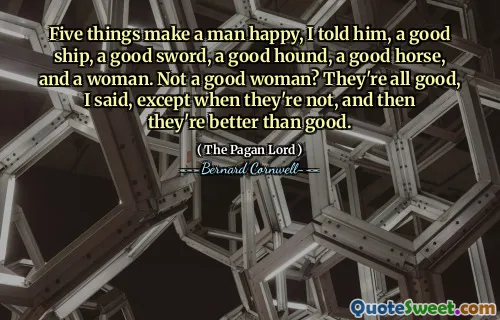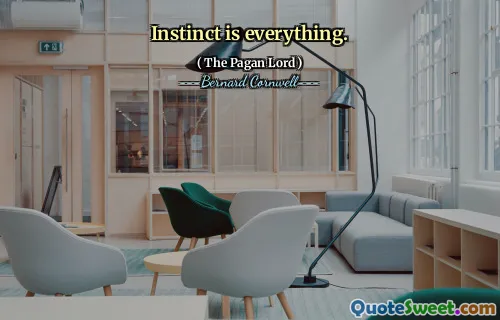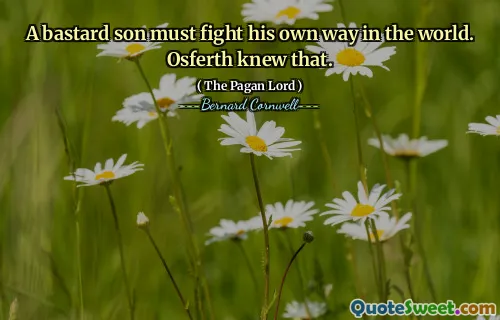
Five things make a man happy, I told him, a good ship, a good sword, a good hound, a good horse, and a woman. Not a good woman? They're all good, I said, except when they're not, and then they're better than good.
This quote encapsulates a perspective on the pursuits and possessions that bring fulfillment and happiness to a man, from the vantage point of a historical or warrior ethos. At its core, it suggests that material possessions and companionship—namely, a ship, a sword, a dog, a horse, and a woman—are the key ingredients for a satisfying life. Interestingly, the speaker nuances the value of women by implying that even the best woman has flaws, and in some cases, their imperfections can make the relationship or the individual even more valuable. This reflection speaks to the human condition and the appreciation of complexity; it recognizes that perfection is elusive, and sometimes, imperfections add depth and authenticity, enriching one’s experience.
From a cultural and philosophical standpoint, the quote echoes the timeless understanding that happiness is often rooted in the balance of possessions, companionship, and purpose. Each item listed symbolizes different aspects of life—adventure and exploration (ship), honor and strength (sword), loyalty and companionship (hound), stability and vigor (horse), and love or intimacy (woman). The humorous tone and the lighthearted observation about women challenge idealized notions of perfection, instead emphasizing acceptance and the understanding that imperfection can be a form of beauty.
This perspective encourages us to appreciate what we have and to accept the imperfections in our relationships and pursuits, recognizing that these imperfections often give life its true richness. It also serves as a reminder of the enduring qualities valued by manhood across different eras: strength, loyalty, nobility, and passion. All these elements, when balanced, contribute to a deeper, more authentic happiness rather than superficial pursuits or idealized ideals.
(The Pagan Lord) - Bernard Cornwell explores themes of loyalty, quest, and the human desire for meaning, which manifest vividly in this quote, representing the complex nature of happiness and fulfillment in life.








